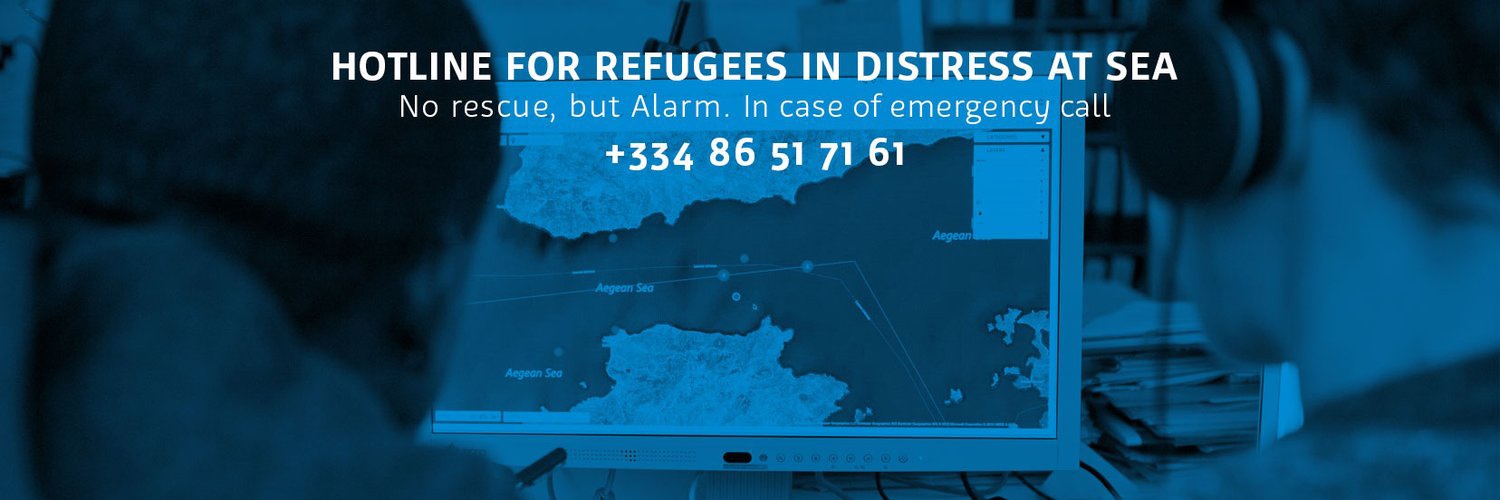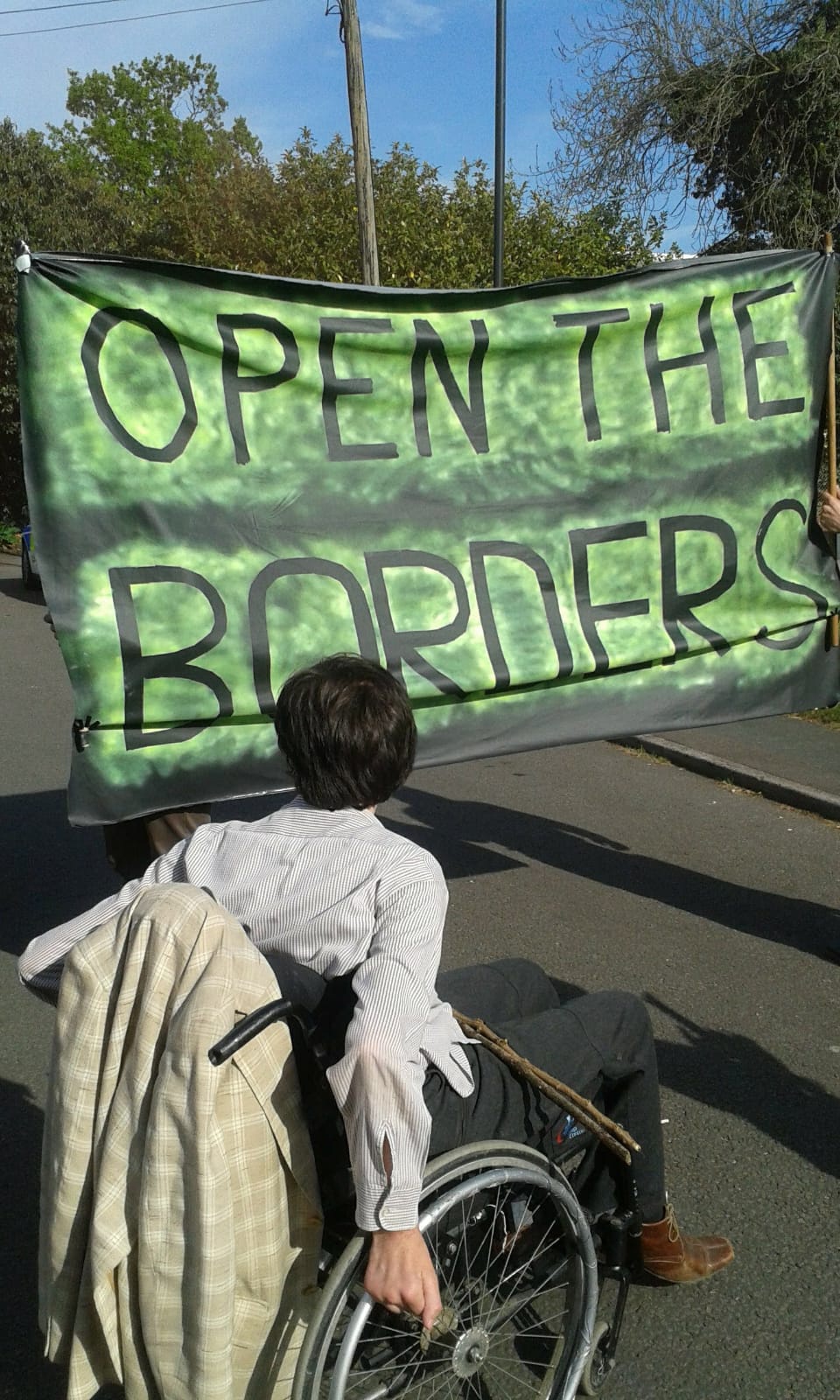This is the last article you can read this month
You can read more article this month
You can read more articles this month
Sorry your limit is up for this month
Reset on:
Please help support the Morning Star by subscribing here
AT LEAST 260 people, including pregnant women and children, set off from war-torn Libya a few days before Good Friday on four overcrowded and unseaworthy boats.
Only two boats made it to safety.
Around 71 people made it all the way to Italy. Forty-seven others were picked up the Basque rescue ship Aita Maria after spending four days at sea. They were forced to wait six more days before Italy would take them in.
A third boat is thought to have capsized — the estimated 85 people on board presumably all drowned. The fourth boat, which was carrying 63 people, was pushed back to Libya after a traumatic six-day odyssey in which 12 people lost their lives.
Neither Italy, Malta nor the European Border and Coast Guard Agency (Frontex) attempted to rescue any of the people on those four boats despite the fact that three of them were inside Malta’s search and rescue zone for days. Malta did, however, orchestrate the fourth boat’s return to the chaos in Libya.
We may have never known about the refugees on those four boats if it wasn’t for Alarm Phone, a transnational network of activists who run a hotline for people in distress in the Mediterranean Sea.
“The network extends from Senegal, particularly Niger, up through the Sahara and north Africa, where there are teams in Morocco and Tunisia and also in Turkey,” says Jacob Berkson, an Alarm Phone activist.
Based in Brighton, Berkson says there are teams in Manchester, Wales, Sweden and right across Europe too, all of whom take turns staffing Alarm Phone’s 24-hour hotline.

“We exist because, back in 2014 or 2015, there were a number of left-to-die cases where the European coastguards refused their obligations under international maritime law to rescue boats in distress because they were carrying migrants — undesirables from their point of view.
“We set up to be a witness, to put pressure on the coastguards, to support people making that journey and to be as close as possible to people on the move.”
When a call comes in from the Mediterranean, the activists’ first priority is to get the GPS position of the refugees’ boat. From then on, Berkson says, it’s about being a conduit between them and the European maritime authorities.
“Once you’ve got the GPS position, we can contact the coastguard and start to put pressure on them to arrange their rescue.
“You’ve also got to explain who you are and what you can do. It’s a kind of balancing act. You’ve got to try to make sure that people know who you are, that you’re trustworthy and that we don’t have rescue ships.
“So you’re trying to establish trust very quickly and you’re trying to get the information that you need — which primarily is the GPS but then also the colour of the boat, what’s its condition, how many people are on board, what’s the composition of the people.
“One of the problems is you can get a lot of boats leaving Libya at the same time in a convoy. So you’ve got to try and work out how many boats you are talking to. And you don’t want anyone to be left behind.
“So you’re trying to get as much identifying information as you can about the boat to pass on to the coastguard. But without the GPS position it’s so much harder to get the coastguard to do anything.
“And then it’s about keeping in contact with the boat, checking to see if the situation is getting worse.”
Berkson and I spoke a few days before the Easter weekend tragedies. At that time we knew there was at least one refugee boat in distress in Maltese waters and that once again Malta had not sent any of its coastguard ships to rescue them.
“They’re very slow to organise rescues,” he says of the Maltese coastguard in general.
“They’re very uncommunicative with us. And there have been two cases which we’ve documented of the Maltese authorities arranging with the Libyans to come right into the Maltese search and rescue zone.”
Despite the conflict and the European Union’s own concerns that the Libyan government may be violating the human rights of migrants and profiting from their detention, the bloc has supported and trained the Libyan coastguard since 2017 and intends to continue to do so.
Returning people to a country at war is referred to in legal terms as refoulement. It is a breach of a number of international laws, including the 1951 Convention Relating to the Status of Refugees, for a government to do so.
Facilitating the rescue of people in distress by the Libyan coastguard, Berkman says, is a clear violation of that international law.
“The Libyan coastguards are not coastguards. They’re militias and their well-documented practices are not the practices of a search and rescue organisation.
“Once you’ve claimed asylum in Europe, that principle of non-refoulement is really well respected. It’s one of the reasons why it's very hard for European governments to remove people from their territories. So they just leave them in limbo instead.
“But somehow, when it’s at sea, when you’ve left Libya, it’s OK for the Italian coastguard or the Maltese coastguard to phone one of the various Libyan militias and coordinate a rescue when they have already escaped from Libya’s territorial waters.
“It’s a breach of international law. And obviously, it’s just hugely inhumane. I mean, you’re talking about returning people to to a war zone and to concentration camps.”
Another part of Alarm Phone’s work is drawing attention to all of this.
“The border functions to make things invisible. Somehow these lives don’t matter. Somehow it’s not a scandal that 150 people drowned when they could have been saved without anyone blinking an eye. That is a massive scandal.
“Part of what we do is about challenging the logic that says as long as somebody is not in Europe, it’s OK to treat them any way you like.
“It’s about documenting and making this stuff visible in a way that doesn’t allow people to say they didn’t know what was happening.”
Instead of dealing with the consequences of Europe’s border policies, which have turned the Mediterranean into the world’s deadliest border (256 deaths have been recorded so far this year at the time of writing), some European governments have accused Alarm Phone and the small collection of NGO rescue ships (often referred to as the civil fleet) of being or aiding human traffickers.
Italy and Malta have recently closed their ports to foreign-flagged rescue ships, claiming their countries are not safe due to the global Covid-19 pandemic.
Several civil fleet organisations such as Sea Watch, Mediterranea: Saving Lives, Doctors Without Borders and Open Arms (none of which fly with the Italian or Maltese flags) believe these government decrees were deliberately aimed at them.
Both countries have also impounded civil fleet ships and attempted (unsuccessfully) to prosecute their captains and volunteers.
These actions, Berkman says, amount to the criminalisation of solidarity.
“The European Union’s policy is that people should be drowning in the Mediterranean, rather than coming to Europe. What we’re doing is a direct challenge to that.
“Of course we’re not trafficking people, smuggling people or whatever. The charge they often bring up is facilitating illegal migration or something. Even that is ridiculous as people are moving anyway — if we’re there or not — and always have.
“We are alerting the coastguard to boats in distress. I mean, in a practical sense and a legal sense, that can’t be a criminal act.
“When the civil fleet steps in to pick up boats in distress, even if they've not been ordered to do so by the coastguard, they’re not just within their rights, they’re following their obligations under maritime law.
“They would rather people drowned in the Med than arrive in Europe. And what we’re doing is a challenge to that.”
Jacob Berkson is an Alarm Phone activist. Visit: alarmphone.org/en or follow them on Twitter: @alarm_phone.
Ben Cowles is the Star’s web editor. You can follow him on Twitter: @Cowlesz.


 Ben Cowles
Ben Cowles






